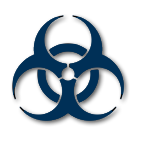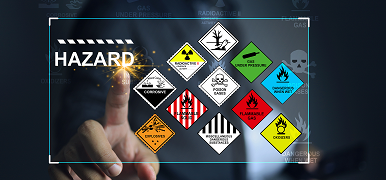
About Biological Safety at Georgia Tech
Biosafety is an essential element of any institution that engages in biological laboratory work. The fundamental purpose of any biosafety program is to ensure "containment" of biological materials. The Georgia Tech Biosafety Team aims to ensure containment by assessing biological hazards and then mitigating that risk to laboratory personnel and to the overall community.
If you have questions about biosafety in your lab, please email biosafety@ehs.gatech.edu. Many common questions about biosafety at Georgia Tech can be answered in our FAQs.
Biosafety Manual
This manual describes basic principles of biosafety that are applicable to biological laboratory work at Georgia Tech. It contains general information on biohazards and biosafety levels, the risk assessment process and it outlines processes and procedures for conduction biological activities as well as details emergency response actions. It is reviewed annually by the Office of Biosafety to ensure that the information is accurate and timely.
- Have all lab members read the manual.
- Print and complete pages 5 and 6 and place in lab binder.
- Ensure that a copy of the manual is available in the lab (printed or electronic).
Contact Us

Biosafety Officer:
Kristy Jennings
404-894-6120

Associate Biosafety Officer:
Monni Begum
404-894-6119

Biosafety Specialist:
Kalah Byrd
678-427-6212
Other Resources
Equipment
The Office of Biosafety arranges for the annual certification of biosafety cabinets and laminar flow hood/clean benches. We also manage the preventative maintenance contract for shared use campus autoclaves and associated boilers.
Inspections
EHS plans inspections based on the building the lab resides. When EHS visits your building, you will be notified at least 2 weeks prior to prepare for the inspection.
Forms
Postings
External Links
IBC Guidance for Faculty Planning to Work with recombinant DNA or Synthetic Nucleic Acid Molecules
Biosafety in Microbiological and Biomedical Laboratories (BMBL) 6th Edition
American Biological Safety Association (ABSA)
Office of Biotechnology Activities
Diseases; bloodborne pathogens; sharps injury protection
OSHA bloodborne pathogens standard
Public Health Agency of Canada – Infectious Agent Safety Data Sheets





